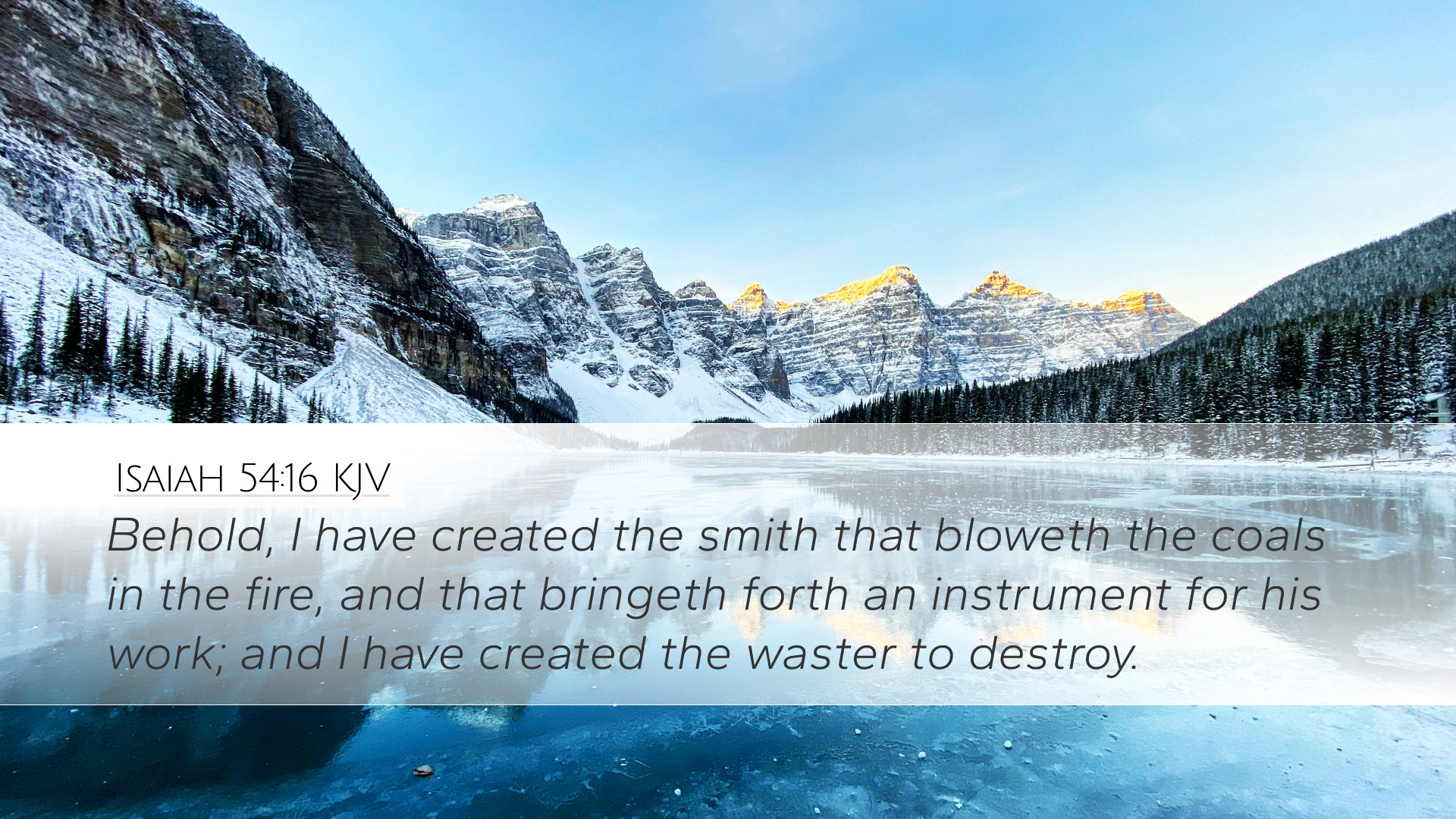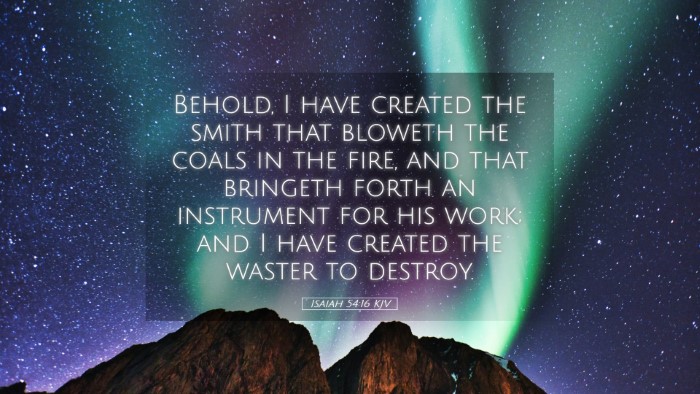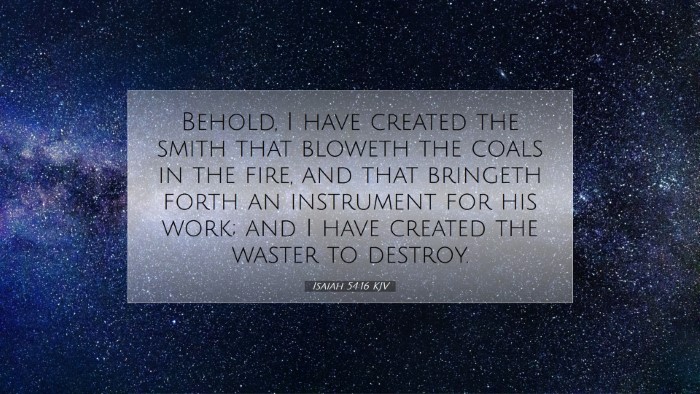Commentary on Isaiah 54:16
Isaiah 54:16 states: "Behold, I have created the smith that bloweth the coals in the fire, and that bringeth forth an instrument for his work; and I have created the waster to destroy." This verse is rich with meaning and provides profound insights into the sovereignty of God and His power over all creation.
Overview of Isaiah 54
The context of Isaiah 54 is one of restoration and assurance for the people of Israel. The chapter opens with a call to rejoice, as it speaks of the redemption and favor that God is extending to His people after a period of judgment. Verse 16, in particular, highlights the creator's authority over both the means of destruction and the agents of His purpose.
The Divine Sovereignty
Matthew Henry emphasizes God's sovereignty in this verse, stating that even the instruments of destruction are under His control. God is depicted as the Creator who not only fashions the instruments of war but also allows their existence for His divine purposes. This points to His ultimate authority over every force, whether good or evil.
Henry notes that the “smith,” which represents the blacksmith or weapon maker, is a tool in God’s hands. Despite the destructive potential of these instruments, they serve as part of God's overarching plan. The notion of divine craftsmanship reminds believers that nothing happens outside the realm of God's control.
The Role of Evil in God’s Plan
Albert Barnes provides additional depth by discussing the implications of God creating the “waster.” The term implies destructive forces, symbolizing those who might bring harm yet still operate within God’s permissive will. Barnes points out that God’s sovereignty encompasses even the adversities the righteous face, illustrating that trials serve a larger purpose in the unfolding of salvation history.
Theological Reflections
This verse invites deep theological reflection on the nature of evil and suffering. Adam Clarke highlights that while God creates the “waster,” it is not an endorsement of malicious intent. Instead, it serves to remind us that God's plan often transcends human understanding. Clarke asserts that the trials faced by believers can ultimately lead to spiritual growth and refinement.
Assurance in God’s Providence
There is comfort for the believer in acknowledging that every trial and tribulation is allowed by God for a reason. As Matthew Henry notes, this serves to strengthen faith and dependence on God. It encourages the believer to see adversities through the lens of God’s overarching purpose, which ultimately seeks the good of His people.
Practical Applications for Believers
- Trust in God’s Sovereignty: Believers are reminded to trust in God's sovereign control over all aspects of life, including those things that seem chaotic or destructive.
- Confidence in God’s Protection: Knowing that even the “waster” is created by God encourages confidence in His protection against the spiritual and physical challenges faced.
- Growth Through Trials: Understanding that trials are often part of God’s divine plan can make the journey of faith more meaningful, pushing believers towards growth.
- Perspective on Suffering: This verse provides a framework for interpreting suffering, suggesting that it can serve a greater purpose beyond immediate discomfort.
Conclusion
Isaiah 54:16 encapsulates essential truths about God's sovereignty, the nature of evil, and the purpose of suffering. Through insights drawn from the commentaries of respected theologians, pastors and students are encouraged to grapple with the profound implications of this verse. They are called to embrace the reality that God, in His infinite wisdom and power, governs every element of existence for the ultimate good of His people and His glory.


